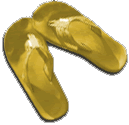Daily bread blessed and broken
 In a story about Carl Sandburg’s days as a hobo, a lady offered him bread, saying, “I give you this bread nor for my sake or for your sake, but for Christ’s sake.” Sandburg replies, “Lady, I ask you this, not for my sake or for your sake, but for Christ’s sake could you put some butter on it.”
In a story about Carl Sandburg’s days as a hobo, a lady offered him bread, saying, “I give you this bread nor for my sake or for your sake, but for Christ’s sake.” Sandburg replies, “Lady, I ask you this, not for my sake or for your sake, but for Christ’s sake could you put some butter on it.”
 Bread was always respected in my home when I was a child. We would learn to consume bread gratefully, and we would not brush breadcrumbs on to the floor. The Egyptians believed that bread, along with beer, constituted the "staff of life."
Bread was always respected in my home when I was a child. We would learn to consume bread gratefully, and we would not brush breadcrumbs on to the floor. The Egyptians believed that bread, along with beer, constituted the "staff of life."
 Besides being a staple food, bread has deep-rooted symbolism in various cultures. This basic food item transcends mere nutrition.
Besides being a staple food, bread has deep-rooted symbolism in various cultures. This basic food item transcends mere nutrition.
The Quran mentions bread in the context of sustenance and divine blessing. Breaking bread together is viewed as a communal expression of gratitude and a reminder of the importance of sharing God's provisions. Bread is a gift that fosters unity and compassion within the community.
In main-line Christian churches, the Eucharist is the most profound example of bread's religious significance. During this sacrament, bread becomes the body of Christ, reflecting the belief in his sacrifice and the promise of salvation.
The act of consuming bread during the Eucharist is a deeply spiritual experience that fosters a sense of unity among believers, reinforcing their connection to each other and to the divine. This ritual underscores the idea that bread transcends mere physical nourishment, becoming a vessel for spiritual sustenance. (Some thoughts from The Creation of Bread and Its Divine Implications in Myth).
There have never been so many reasons to believe in the Eucharist. Yet many people have never heard of them. If this were not true, our churches would be full on Sunday mornings.
In 1447 a fire threatened Venice. The intercession of Saint Nicholas of Tolentino, famous for many miracles involving bread, was sought. Venetian pilgrims brought some bread rolls back from the saint's convent, where they were traditionally kneaded, blessed, and distributed to the faithful.
A priest took one panini loaf and threw it into the fire, invoking Nicholas' help. The fire went out like a candle being blown out! Among Nicholas’s many miracles there is precedent for us to trust such a miracle was possible.
We pray most frequently, “Give us this day our daily bread.” What does that bread do for us? The “bread of life” is good news. Jesus said whoever eats this bread will have life everlasting and will be raised up on the last day.
In John 6:51 Jesus says: “I am the living bread that has come down from heaven. Anyone who eats this bread will live forever.” This is still a difficult concept for Jesus’ followers to accept. In John 6 Jesus says several times and in different ways: “I tell you most solemnly…He who eats my flesh and drinks my blood lives in me and I live in him.”
Jesus said, “He who eats me will live because of me” (John 6:57). In the natural order there is no energy or power to bring us back to life after we die. In the higher order, the Spiritual food of the Eucharist gives us life that will last beyond the physical.
As we eat this daily bread His thoughts become our thoughts; His desires, our desires; and His life in us can burn away all that is not holy. This is a lifelong process. It is worth pondering.
(582 words)

